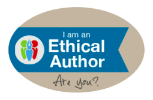






.jpg)

Although most indie authors may plan never to retire from writing, it’s indisputable that we will all at some point leave this world for good. I know it is not a subject we normally talk about but death is something we will all face eventually.
One of the things we need to remember when writing our Will is to include the intellectual property we have created through our writing alongside our other assets. The more successful our indie author business is, the more it is worth securing for our chosen heirs. And if, as a growing number of indies are doing, we also manage publishing projects for other authors, we need to make sure their interests are covered as well as our own.
Here are some recommendations to help you with estate planning for your own self-
Let’s talk about estate planning for independent author-
Business Succession Planning
All businesses face succession issues: Who will take over for key managers and employees. In larger firms, this is just a normal plan, part of the annual review of the business’s readiness to handle change.
Family businesses have additional challenges: What will be the role of the family members in the business once the founder dies or retires? Will they run the business, or will they just own it and let others run it? Will they sell it, and if so how?
A business is an engine for making money. Without the right people in place to make it work, or someone to sell it to, it falls apart.
Indie authors are typically a one-
What Are the Choices in Business Succession Planning?
Let’s look at the typical situation for a family business. Most of us can’t reasonably expect our heirs to run the business. As a one-
What does that leave? Probably most of us will fall into step 4: the ‘Don’t know’ step, instead of trying to find ways to embrace step 3, i.e. sell the business. Let’s not forget that many of us are not that young as many writers are already retired so this is a more urgent need than we really wish to contemplate.
What If We Do Nothing About Estate Planning?
Suppose we actually manage to write down, in an estate document, all the business accounts and passwords for all the elements of our indie-
Our poor heir is left with a sheet of paper, and no idea what to do with it. Proceeds from sales of our book and royalties will still go into our bank account for a while. However, who will pay royalties to any other author you may be publishing? And, who will monitor advertising daily spends?
Because we don’t have employees like a larger business, there are not enough automated systems in place for our business to just run on autopilot, and therefore no one to turn to. If we are very fortunate, there’s an understudy within the family whose been introduced into some or all of the business processes, but I doubt that very many of us have that option.
So, the business at best will simply wind down. But at worst, there will be continued spending to be tracked or shut down, as well as contractual obligations to other authors.
Now, speaking of contracts, if we contract with another author to be their publisher, we must have some sort of succession planning in place, or we will fail in our contractual obligations.
What Can We Do About Estate Planning?
Firstly, we can make plans and arrangements. In this situation (perhaps you owned a small book shop) then your heirs would sell the business if there’s no one available to run it as is. We should do the same.
As a micro-
On my side, I would make a similar arrangement with another micro-
Rolling Up Micro-
As the indie-
Authors and micro-
In the absence of this, heirs would need to seek out any buyers on their own, or watch the business decay in their hands. In my case, I have a daughter who would be willing to take over control.
Whatever you decide remember that basically copyright of work created after 1st January 1978 remains yours for 70 years after your death.